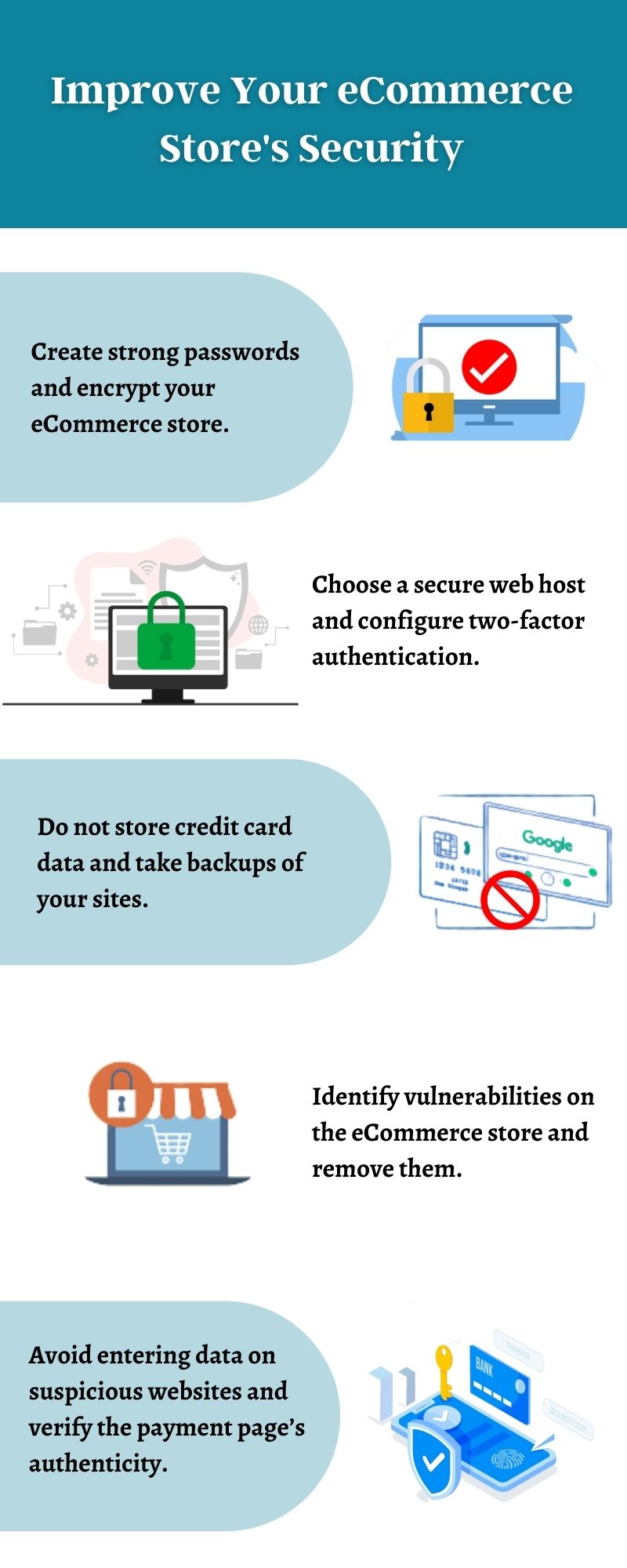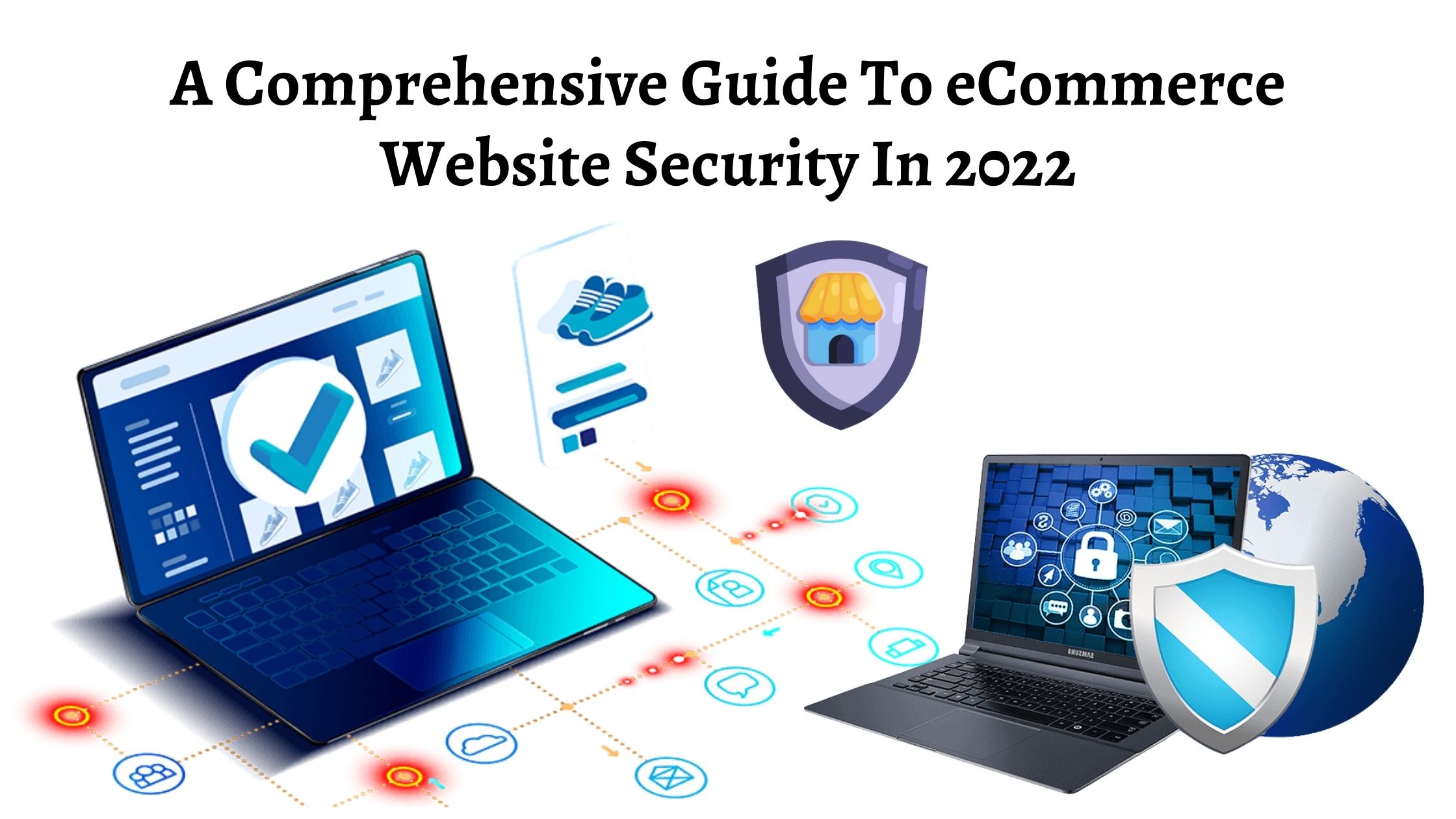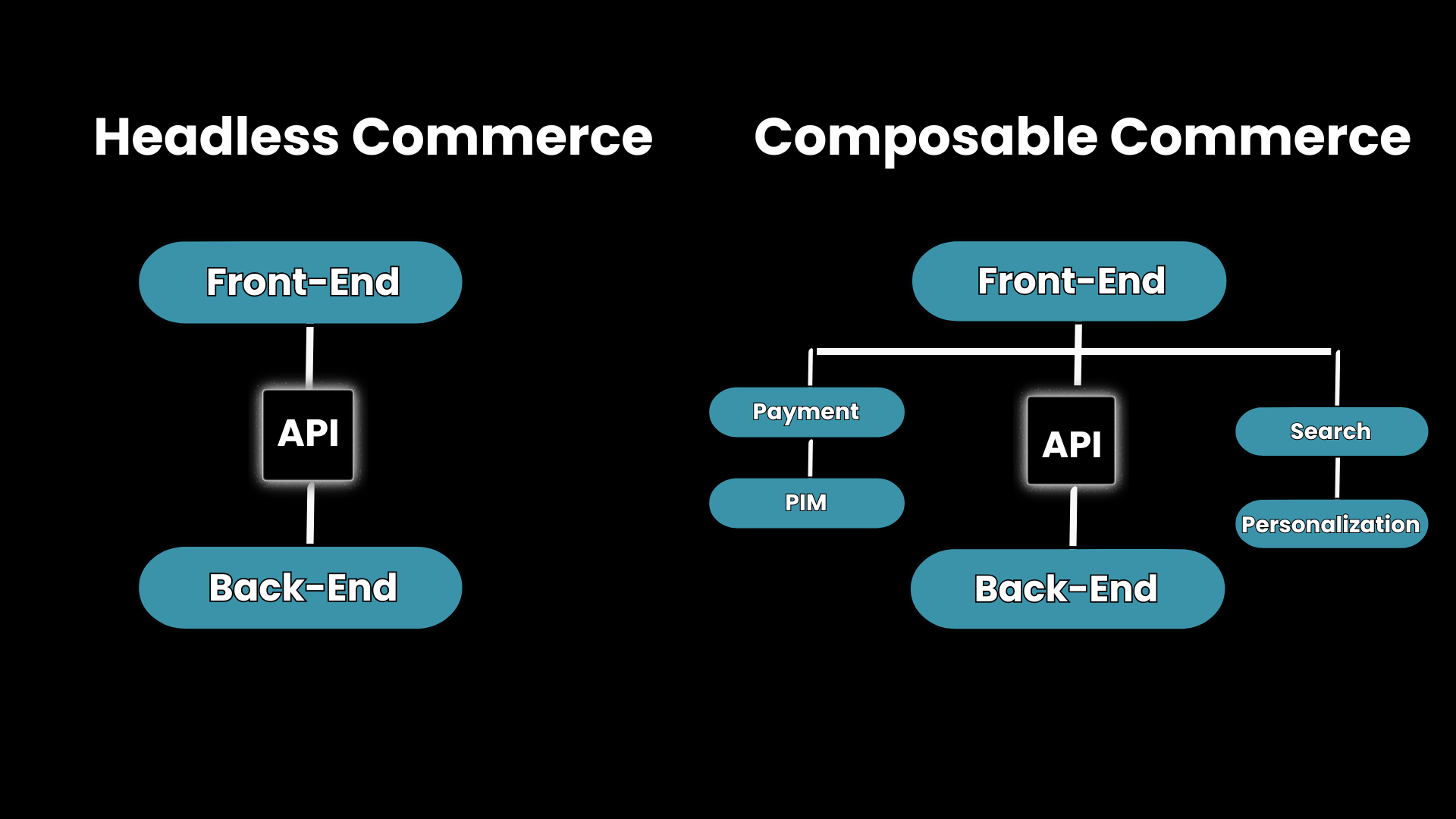Every year online businesses lose a hefty amount of money due to ineffective implementation of eCommerce website security features. Such activity is inefficient in safeguarding their websites from hacking and fraudulent activities. Today, online fraud and other cybersecurity menaces have become prevalent. So, you need the best approach to guard your eCommerce store against them.
To ensure complete website security, you need to integrate robust features and follow the best practices. Right from the eCommerce website development phase, businesses are needed to plan for impregnable and robust security measures to ensure the ultimate security of their online stores. You can choose the best eCommerce development services to build a robust website as per your requirements.
This complete guide will cover all the facets of eCommerce website security in 2025 with ways to improve it. Keep reading to ensure a highly secure eCommerce site for your business today.
What are the Best Practices to Tighten the Security of Your eCommerce Website?

Once you have an idea of developing an online store of your own, the first question that would stick in your mind is, “What is the best website builder for eCommerce?”. Throughout the development process of your website, you will encounter tons of questions and challenges that your eCommerce website service provider can resolve. But the most crucial point will be how to secure your site to prevent different types of malicious activities on your site. So, here are the top practices for cybersecurity in eCommerce that you can follow to safeguard your site from different types of eCommerce cyber attacks.
1. Ensure PCI DSS Compliance
PCI DSS stands for Payment Card Industry Data Security Standard, an information standard applied to organizations that deal with branded credit cards from significant card schemes. PCI DSS compliance is essential for any merchant or organization that accepts, stores, or transmits cardholders’ data irrespective of the number and size of transactions. You can ensure data security by complying with the PCI DSS standard.
Using a Third-Party Payment Processing System for Removing Customer Data
One of the critical protective measures for ensuring the safety of customers’ financial data from hacking is removing their financial details and deploying a third-party payment gateway to handle such data on your behalf. At the time of eCommerce website development services, you can choose a suitable payment gateway compatible with your site. Some reputed third-party payment gateways include PayPal, Stripe, Amazon Pay, and Skrill.
2. Remove Default Passwords from your Website
As soon as you have installed a new module or your eCommerce shopping cart, you need to reset the default password(s) created at the time of installation. Keeping the default passwords is quite risky as they are usually prevalent and can be guessed easily, which might be the reason for the brute force attack on your site.
3. Utilize Monitoring Software to Track Changes in Core Files
Besides the need for eCommerce security, you also need to understand that regular monitoring of your website’s core files can be a good hedge against cyber threats. You can track any changes and detect security issues before they become severe by checking the core files.
4. Regular Backup of Website Data is Important
When it comes to website security, backups can be a real lifesaver. By taking regular backups of your website data, you can ensure data protection and efficiently rebuild the resource in case of any hacking attack or technical glitch.
What are the Biggest Threats to eCommerce Websites?
 The importance of eCommerce security can be recognized by the increasing hacking incidents and malicious attacks happening worldwide. If you are not putting proper protective measures on your website, you will put everything at stake. There are numerous security threats that eCommerce businesses face.
The importance of eCommerce security can be recognized by the increasing hacking incidents and malicious attacks happening worldwide. If you are not putting proper protective measures on your website, you will put everything at stake. There are numerous security threats that eCommerce businesses face.
1. Cross-Site Scripting (XSS)
Cross-site scripting is a fraudulent activity that involves inserting some malicious code (often JavaScript) into a webpage. As opposed to other types of malicious attacks, cross-site scripting doesn’t affect the website itself, but it endangers the users of the webpage, who are then exposed to malware or phishing attempts. The practices to follow to safeguard your site from an XSS attack:
Use a powerful website scanner to detect any security vulnerabilities.
Ensure that server and site modules are updated.
2. Phishing Attacks
Phishing is a social engineering attack in which attackers trick victims, using emails, SMS, or phone calls, into providing personal information like passwords, account details, and more. Phishing attacks have been increasing, especially in the eCommerce industry. Cyber attackers pretend to be eCommerce shop owners and send messages or emails to customers asking to provide details. Such hackers make a fake copy of your web page, trick users into believing it to be original. The most helpful way to prevent Phishing is by making your customers aware. Other than that, you can take preventive measures like integrating a reliable third-party payment processor, using AVS and CVV while making an online purchase, and securing your website with HTTPS.
3. E-Skimming
E-skimming is a type of cyber threat in which cybercriminals introduce skimming code on e-commerce payment processing web pages intended to steal the clients’ personal details. E-skimming can infect your website in several ways, such as vulnerability in your eCommerce website, unsafe third-party incorporation, and others. The data collected through this attack is either sold or used to make fraudulent purchases. To prevent this attack, ensure your website is free of vulnerabilities, prompt your customers not to enter their details on unverified websites, and remind them to verify whether the payment page is genuine.
4. SQL Injections
Your website security is at stake if you store users’ data insecurely in SQL. When your website asks users to provide information via forms or any other medium, and if that data entered by the user is not validated accurately, it may cause an SQL Injection attack. In this scenario, an attacker will not only be able to view sensitive user information, but the attacker can also manipulate the database. When it comes to eCommerce web development, there are different stages like front-end development, back-end development, and more. The back-end development is the phase when you choose back-end technologies and create a database. You need to select the right technologies and implement robust measures for protecting sensitive user data. Checking your website regularly for any vulnerabilities can help you fight against threats like SQL Injections. You also need to integrate the best security features to ensure eCommerce data security.
Also read: Why is Hiring a Web Developer The Best Choice For Businesses?
5. Brute Force Attack
A brute force attack is a constant attempt to try different combinations of passwords or passphrases until it’s cracked down. This kind of attack works on the guesswork, where an attacker starts with a guess and tries different combinations until the password is cracked. Unless there are proper security measures in eCommerce websites, brute force attacks cannot be avoided. The Commerce website development company can help you create a robust and highly secured online store.
The practices to follow for preventing brute force attacks:
It would be best if you create strong passwords for your site’s admin access, including small & capital letters, special characters, and numbers. Also, make sure to create a lengthy password that is hard to predict.
You can add an additional layer of protection by utilizing two-factor authentication.
Challenge visitors to your page by offering a captcha or any other similar tool.
Make a habit of changing passwords at least every three months. Also, it would help if you change your password immediately after completing any work on your site by an outside contractor.
1. Ransomware and Other Malware
One of the significant eCommerce security issues includes the attack of ransomware or other malware. Ransomware is a kind of malware that locks users out of their systems and holds them for some ransom, so the users cannot access any data or files on their systems unless they paid the ransom amount. In the case of an eCommerce website, the server or the network can get infected with ransomware or any other malware that prevents access to the website or data and compromises sensitive information with hackers. With the help of the best eCommerce website development company, you can integrate advanced security measures to protect your website against ransomware and other malware threats. If you have any queries in your mind, like “how do I build an eCommerce website with better security features?” you can discuss them with your service provider. They can suggest the best measures and practices for tightening the security of your website.
2. DoS and DDoS Attack
Both DoS and DDoS attacks are aimed at pushing down your website. DoS, which stands for Denial-of-Service, attempts to stop regular access to your online store by flooding the website with overwhelming amounts of junk traffic. It means it is an attempt to disrupt your network or server by flooding it with excessive traffic by preventing genuine users from visiting your site. DDoS, which stands for Distributed-DoS-Attack, occurs when the same activity is done from multiple devices. With some unique server configurations, DDoS attacks can be suppressed.
Wrapping Up
The internet world is not an entirely secure place, so having robust security measures for your eCommerce website is a must to provide a safer and more reliable shopping experience to your customers. Hire web developers who understand the security prospects of a website, as it will be the right approach for possible protection measures that lay down a strong foundation for your website. Besides preventive measures, eCommerce security management must also rectify customer grievances regarding their data safety.
Categories
Recent Posts
Popular Posts
- How to Choose a Reliable Offshore Development Partner?
- Transforming Web Development with HTMX’s Declarative Approach for Dynamic UIs
- Why Your Conversion Funnel Needs a Composable Commerce Solution?
- How to Outsource Web Development in 2025: Complete Guide
- What are the Top Web Development Trends for 2025?




